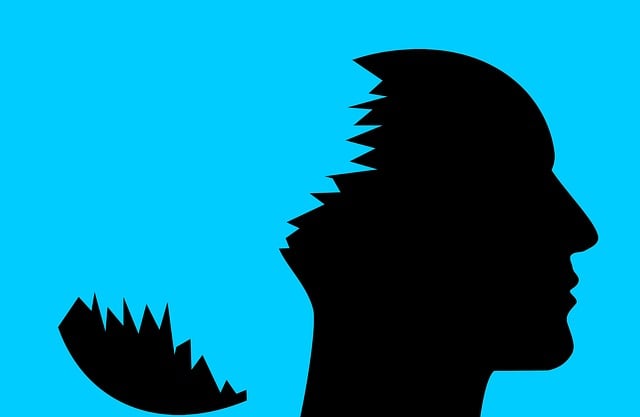During the planning phase of a mental wellness podcast focusing on Wheat Ridge Somatic Experiencing Therapy (WRSET), key steps include understanding target audience needs, researching existing mental healthcare campaigns, establishing culturally sensitive episode themes and structures, interviewing experts and individuals with personal stories, incorporating practical topics like burnout prevention, and ensuring high-quality production. The podcast aims to educate and empower listeners through stress management, resilience building, and emotional intelligence, using formats like interview style, storytelling, or solo hosting to deliver unique content that enhances well-being.
“Unleash the power of mental wellness through podcasting! This comprehensive guide takes you on a journey from concept to launch, focusing on the unique perspective of Wheat Ridge Somatic Experiencing Therapy (WRSET). Learn how to plan and produce engaging episodes, choosing formats that resonate with your audience. Discover expert tips on recording, editing, and distributing your podcast, ensuring top-notch sound quality and compelling content. Elevate your mental health discourse—one episode at a time.”
- Planning and Pre-Production
- – Defining the podcast's purpose and target audience in alignment with Wheat Ridge Somatic Experiencing Therapy (WRSET) principles.
- – Choosing a format: Interview style, storytelling, or solo hosting, and its impact on content structure.
Planning and Pre-Production

During the planning and pre-production phase, it’s crucial to lay a solid foundation for your mental wellness podcast series. Start by defining your target audience—whether it’s individuals struggling with stress, anxiety, or specific mental health conditions like those managed through Wheat Ridge Somatic Experiencing Therapy. Understanding your audience allows you to tailor content that resonates deeply and fosters engagement. Research existing public awareness campaigns development in mental healthcare to identify gaps and opportunities for unique, insightful perspectives.
This phase also calls for establishing a theme and structure for each episode, considering cultural sensitivity in mental healthcare practice to ensure inclusivity and avoid stereotypes. Plan interviews with experts, therapists, and individuals who have overcome challenges, balancing their personal stories with evidence-based practices. Incorporate segments on burnout prevention as a critical aspect of mental wellness, offering practical tips and strategies to help listeners cultivate resilience. Pre-production includes scriptwriting, equipment testing, and setting realistic production timelines—all essential for delivering high-quality content that captivates and informs your audience.
– Defining the podcast's purpose and target audience in alignment with Wheat Ridge Somatic Experiencing Therapy (WRSET) principles.

The purpose of this mental wellness podcast series is to explore and demystify various aspects of emotional well-being, specifically within the lens of Wheat Ridge Somatic Experiencing Therapy (WRSET). WRSET, renowned for its trauma support services, focuses on facilitating profound healing by addressing the body’s physical and emotional responses. This podcast aims to educate and empower listeners by delving into topics such as stress management, resilience building, and cultivating emotional intelligence—all integral components of mental health education programs design. Through engaging conversations with experts and individuals who have overcome challenges, we strive to create a safe space for learning and support, ultimately fostering better self-care practices and enhancing overall well-being.
– Choosing a format: Interview style, storytelling, or solo hosting, and its impact on content structure.

When crafting a mental wellness podcast series, one of the initial—and crucial—decisions involves choosing a format. Three popular options include interview style, storytelling, and solo hosting. Each offers distinct advantages and shapes content structure differently. For instance, interviews allow for diverse perspectives, facilitating in-depth discussions on specific topics like Wheat Ridge Somatic Experiencing Therapy and its benefits in stress reduction methods. Storytelling provides a compelling narrative approach, where personal experiences can entertain and educate listeners about emotional intelligence and its role in mental healthcare. In contrast, solo hosting offers an intimate setting for the creator to share their expertise directly, fostering a more personalized connection with the audience on intricate aspects of cultural sensitivity in mental healthcare practice.
The selected format significantly influences the flow of information, engagement levels, and overall listener retention. Interview-based podcasts often feature expert guests, enriching content and offering valuable insights from various fields. Storytelling episodes can humanize complex topics, making them more relatable. Solo hosting provides an opportunity for deeper exploration of niche subjects, fostering a sense of community among listeners who relate to the host’s journey. Regardless of the chosen format, well-structured episodes—with clear introductions, transitions, and conclusions—ensure a seamless listening experience.
In conclusion, producing a mental wellness podcast series aligned with Wheat Ridge Somatic Experiencing Therapy (WRSET) principles requires careful planning and strategic pre-production. By defining clear goals and understanding the target audience, along with selecting an engaging format—interview, storytelling, or solo hosting—creators can craft content that resonates deeply with listeners. This approach not only enhances accessibility but also fosters meaningful connections, making the podcast a valuable resource for mental health support and education.














